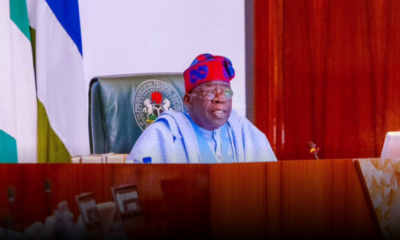TUC has advised FG to raise the minimum salary for employees to N200,000 in order to mitigate the effects of subsidy removal.
The grievances over the removal of fuel subsidy by the Federal Government may have assumed a new dimension, as the Trade Union Congress of Nigeria has demanded an increase in the national minimum wage from N30,000 to N200,000.
It was gathered that all the demands raised by TUC have already been forwarded to the government at Sunday’s meeting that was held at the Presidential Villa.
A list of other demands is contained in a joint statement signed by Comrade Festus Osifo, President TUC and Comrade Nuhu Abba Toro, Secretary General, respectively.
TUC also wants the government to revert to the old fuel pump prices of N195 per litre while negotiations continue.
“The minimum wage should be increased from the current N30,000 to N200,000 before the end of June 2023, with consequential adjustments to the Cost of Living Allowance (COLA), like feeding, transport and housing,” TUC stated.
The union said a representative of state governors will be party to this new minimum wage and all the governors must commit to implementing the new wage.
It also wants a tax holiday for employees both in government and private sector that earn less than N200,000 or 500USD monthly, whichever is higher.
“We want PMS allowance to be introduced for those earning between N200,000 to N500,000 or 500 USD to 1,200 USD, whichever is higher.
“The exchange rate for retailing PMS in the country must be kept within a limit of +- 2% for the next ten years. Where the fluctuation is more than 2%, the minimum wage will automatically increase at the same rate.
“Setting up an intervention fund where the government will be paying N10 per liter on all locally consumed PMS. The primary purpose of this fund is to solve perennial and protracted national issues in education, health and housing. A governance structure that will include labour, civil society and government will be put in place to manage the implementation.
“The federal government should provide mass transit vehicles for all categories of the populace.
“State governments should immediately set up a subsidized transportation system to reduce the pressure on workers and students. The framework around this will be worked out.
“Immediate review of the National Health Insurance Scheme to cover more Nigerians and prevent out-of-stock drugs.
“Visitation of the refineries that are currently undergoing rehabilitation to ascertain the state of work and set up a timeline for its completion.
“The president should direct whoever will be labour minister to immediately constitute the National Labour Advisory Council (NLAC). This platform will be used by the government, labour, and employers to discuss issues and policies of the government that may affect workers and all other mandates as specified in the law.
“Provision of subsidy directly for food items, the 800 million dollars could be a first step.
“The existing National Housing Fund (NHF) should be made accessible to genuine workers; the framework on this must be discussed and agreed upon.
“Medium Term, Deployment of Compressed Natural Gas (CNG) across the country in line with the earlier promise made by the government. The framework and timeline will be developed as agreed upon by both parties.
“Labour and government to design a framework that will be geared towards the reduction of the cost of governance by 15% in 2024 and 30% by 2025.
“A framework should be immediately put in place to maintain the road and expand the rail networks across the country. The government must design a framework for social housing policy for workers through the rent-to-own system.
“The state of electricity in the country must be appraised and an action plan should be defined with time lines on how to get this fixed. A strong monitoring team comprising all parties will be constituted,” the statement added.

 BIG STORY3 days ago
BIG STORY3 days ago
 BIG STORY5 days ago
BIG STORY5 days ago
 BIG STORY3 days ago
BIG STORY3 days ago
 BIG STORY5 days ago
BIG STORY5 days ago
 BIG STORY19 hours ago
BIG STORY19 hours ago
 BIG STORY4 days ago
BIG STORY4 days ago
 BIG STORY2 days ago
BIG STORY2 days ago
 BIG STORY3 days ago
BIG STORY3 days ago






















